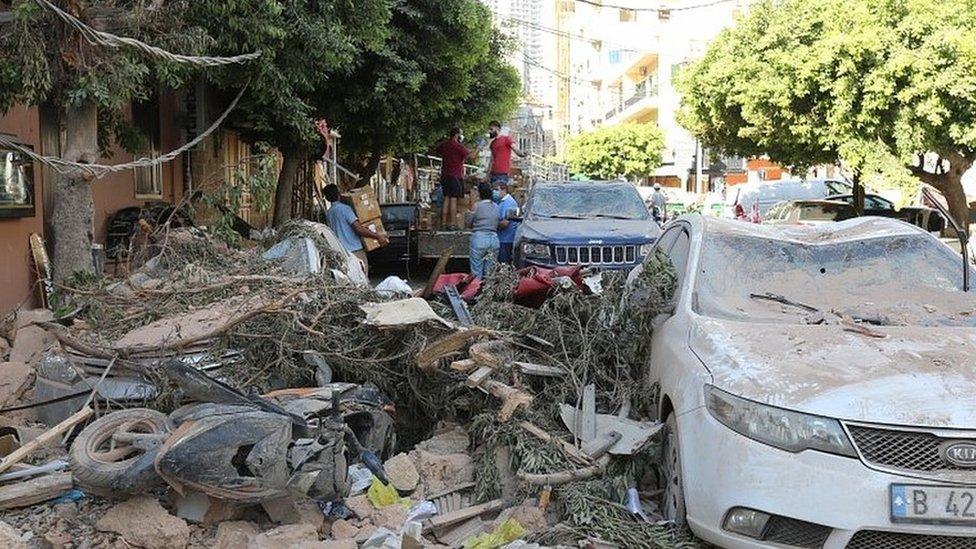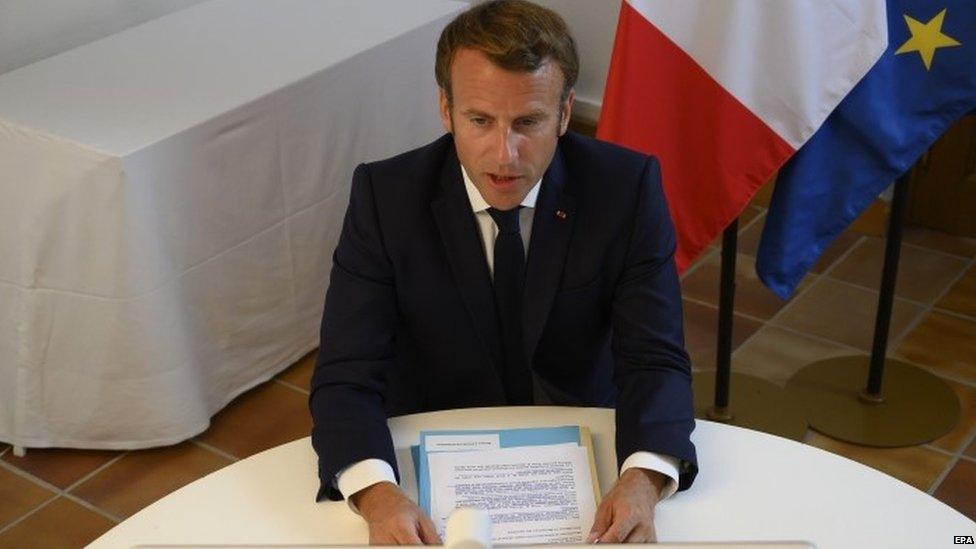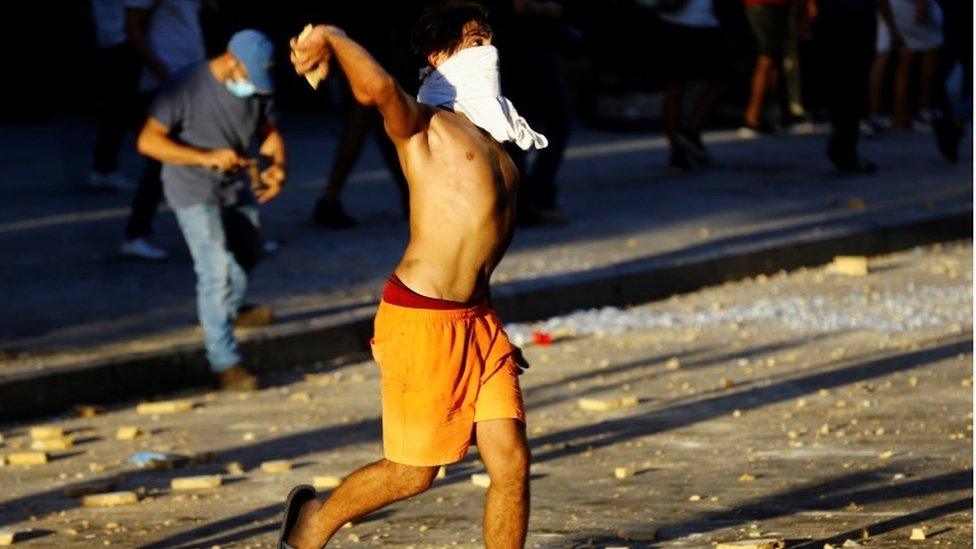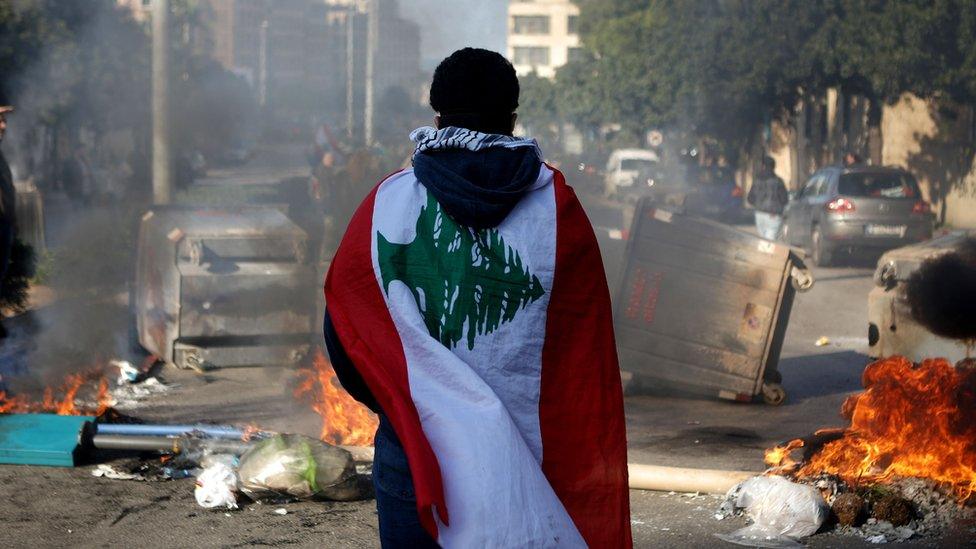Beirut explosion: UK to pledge further £20m to relief effort
- Published

The UK has pledged a further £20m in aid to Lebanon following Tuesday's deadly explosion in Beirut.
The support will go directly to those injured and displaced by the explosion, providing access to food and medicine as well as other urgent supplies.
The UK, which has already given £5m to the emergency relief effort, said it showed its commitment to "stand by" the Lebanese people in their hour of need.
France's Emmanuel Macron has warned the country's future is "at stake".
Addressing a virtual meeting of world leaders to discuss the economic and political fallout from the tragedy, the French president said it was a "wake-up call" for the Lebanese government and the international community had a huge stake in the country's "reconstruction" to help ensure regional stability.
The blast in the city's port destroyed large parts of the surrounding area, killing more than 150 people, injuring more than 5,000 and leaving more than 300,000 homeless.
In a phone call with the Lebanese president on Saturday, Prime Minister Boris Johnson said the UK would "stand by the country in its hour of need".
In the immediate aftermath of the disaster, the UK offered £5m in emergency support, £3m of it for the British Red Cross. It is now proposing to give a further £20m to the World Food Programme, run by the United Nations.
The extra money comes after an assessment of the health situation on the ground by a team of specialist UK medics, who arrived in the city on Friday.
"The devastation we have seen in Lebanon this week has left people without homes, medical care and wondering how long it will be until the country's food supplies run out," International Development Secretary Anne-Marie Trevelyan said.
"Today the world is coming together to stand by the Lebanese people, and as one of the biggest donors to this crisis so far, the UK is pledging more urgent support to help all those affected by this terrible disaster."
This Greek Orthodox church's altar survived the blast unscathed - even its oil lamp stayed lit
In response, the World Food Programme said it was grateful for the "swift and heart-warming response".
Ms Trevelyan is representing the UK at Sunday's donors' event, which is being chaired by UN Secretary General Antonio Guterres and Mr Macron.
Officials estimate the blast at the warehouse, which stored more than 2,000 tonnes of ammonium nitrate, caused up to £11.5bn in damage.
One British aid worker told the PA news agency that the explosion had had a "devastating" impact on the city.
"The area of affected property is massive," Rob Davis, from Search and Rescue Assistance in Disasters, said.
He and other volunteers have been trying to find survivors and evaluate the structural safety of buildings hit by the blast. He told PA that buildings more than six miles from the epicentre of the blast had been damaged.
'Time for action'
The explosion has left many homes without water or electricity while the city's hospitals, already dealing with a spike in Covid-19 cases, risk being overwhelmed.
Amid growing popular anger at the Lebanese government and the country's economic stagnation, Mr Macron told Sunday's meeting that its people needed help now.

The French President said the future of the country and region was at stake
He urged the Lebanese authorities to co-operate with its allies in the region and the West to stop other countries who wanted to sow "division and chaos".
"The time to wake up and for action has come," he said. "The Lebanese authorities must now make political and economic reforms, demanded by the Lebanese people and through which can permit the international community to act efficiently for the reconstruction of Lebanon.
"I think at this moment, over these days the future of Lebanon is at stake. The future of the Lebanese people but also a whole region."
- Published9 August 2020

- Published5 August 2020
